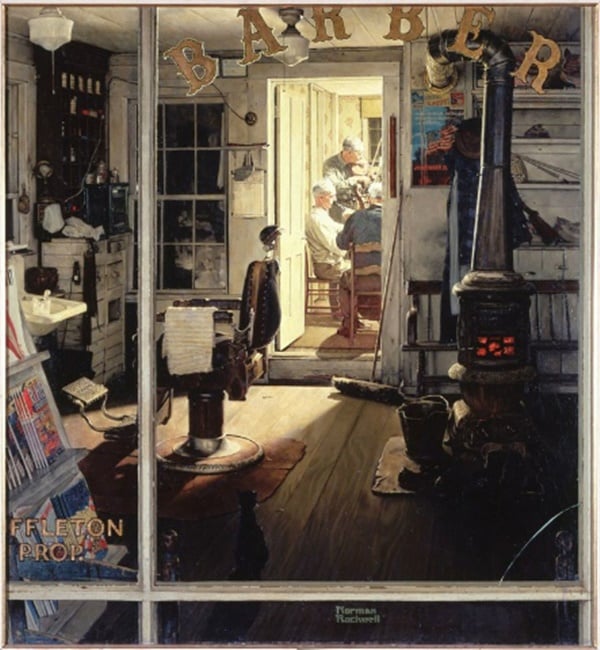Auctions
Rockwell Heirs File Lawsuit and Restraining Order to Halt Berkshire Museum Sale at Sotheby’s
Rockwell heirs and other community members hope a restraining order will prevent the works from leaving the state.

Rockwell heirs and other community members hope a restraining order will prevent the works from leaving the state.

Eileen Kinsella

The heirs of artist Norman Rockwell have filed a lawsuit and a temporary restraining order against the trustees of the Berkshire Museum in an effort to block the planned sale of two major works by the artist. The Berkshire Museum is due to auction off more than 35 works from its collection—including two paintings Rockwell personally donated to the institution—at Sotheby’s next month.
News of the sale immediately set off a firestorm of controversy among locals and ignited a national debate about when museums should be permitted to sell work from their collections.
In the suit, filed today in Berkshire County superior court, Rockwell’s heirs call the planned sale “unnecessary and unlawful.” They argue that a number of the works—including Rockwell’s Shuffleton Barber Shop, which carries an estimate of $20 million—are “central fixtures of the museum’s permanent collection” that would almost certainly leave Berkshire County if the sale moves ahead. The most valuable works in the trove are scheduled to be sold on November 13.
The plaintiffs say the planned sale runs “directly contrary” to the Massachusetts statute that established the museum, which requires gifts to be maintained in the public trust. They also claim that the institution could put itself in a healthy operating position without selling its art and that “multiple independent examinations of the museum’s finances show” that the institution “grossly exaggerated” its dire financial state.
Asked for comment, Berkshire Museum board president Elizabeth McGraw said in an emailed statement: “We believe we have strong legal grounds for our deaccessioning and we are confident in our New Vision plan which will allow this important local museum to continue to contribute to the educational and cultural life of this region for another century. Berkshire Museum provides unique educational experiences for local children, and will continue to make its extraordinary collection accessible to the community as we take the next steps needed to secure the future of this museum as a center of interdisciplinary, interactive learning true to the vision of founder Zenas Crane.”
The Massachusetts attorney general, Maura Healey, confirmed in late August that her office was looking into the sale to see if it violated laws governing nonprofits. The lawsuit notes that the eight plaintiffs—the artist’s three sons Thomas, Jarvis, and Peter Rockwell; a local artist; and four museum members and donors—have been “working diligently” with the attorney general to express their concerns.
The attorney general is named in the suit because it oversees the actions of public charities. Spokeswoman Emily Snyder told artnet News via email: “Our office has been closely reviewing the proposed transaction to see how it comports with applicable charities laws, including whether there are any restrictions on the Museum’s ability to sell these items. We will closely review the filings in today’s lawsuit as part of our ongoing review.”
“There is an outcry amongst people in Berkshire County and various organizations in Massachusetts,” Michael Keating, an attorney for the plaintiffs and a partner with Foley Hoag in Boston, tells artnet News. He says his firm began working on the case several weeks ago, after a group of concerned citizens and members of the Rockwell family reached out. News that the family had met with the attorney general was first made public earlier this week. “We felt that we had to file suit because of the impending sale by Sotheby’s,” Keating says. “And you know if Sotheby’s sells this art, it is gone.”
In a statement this afternoon, Sotheby’s said it had reviewed the lawsuit and “is confident that the claims are legally and factually flawed.” The auction house continued: “We fully expect the court to confirm that the board of trustees acted in accordance with its fiduciary duties and that the museum is well within its rights to deaccession and offer these works for sale. We are looking forward to successful auctions that will ensure the future of the Berkshire Museum.”